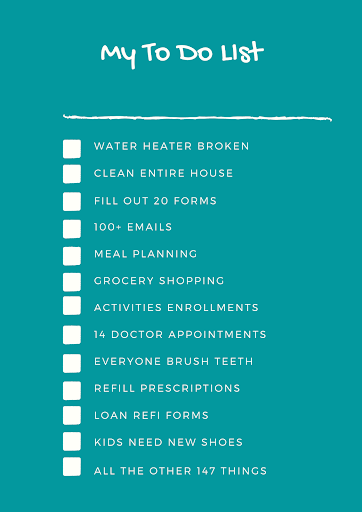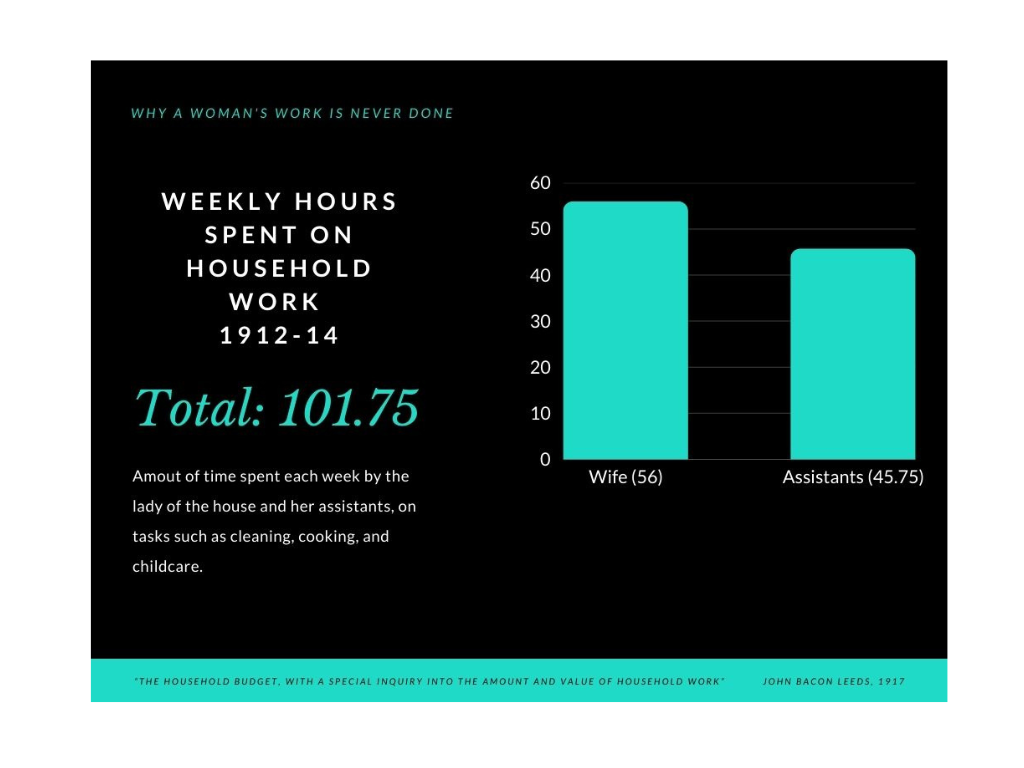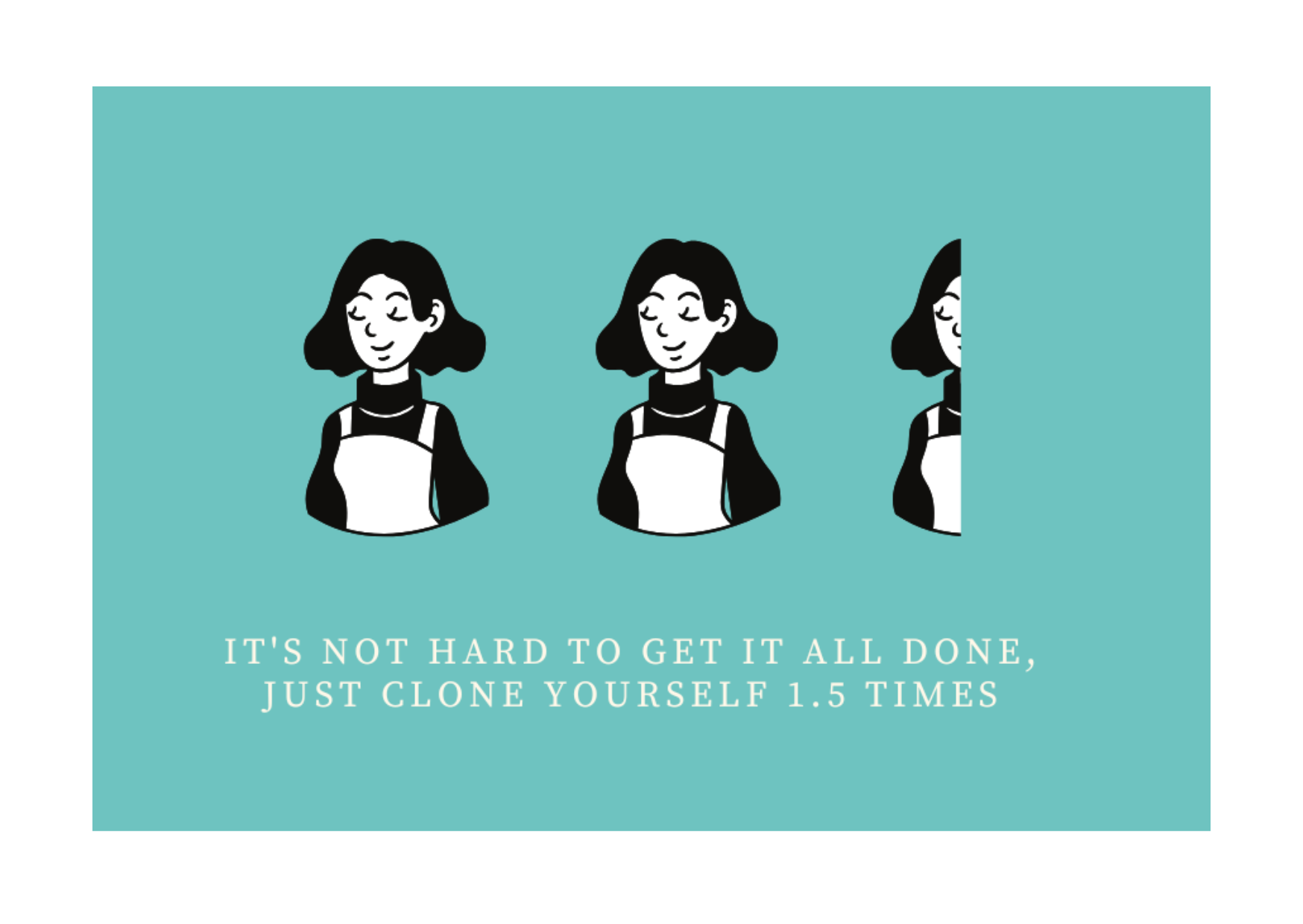The Conspiracy To Keep Women Busy ™

Have you ever got into a state of mind where you thought, just one more weekend, just one more intense day, just another round of catching up, and you’d be all caught up, and then you’d have time for the things you actually want to do?
Yeah, I didn’t think it was just me. Have you ever actually caught up? Me neither.
Next question: How long have you stayed in such a state, thinking that yes, it’s been that way for a long time, but really, just another weekend, just another busy month, just this particularly busy season of life, and then after that, it would all get better?
Somehow, a new thing would always come up. Always another thing.
If you’re anything like me, you’ve juggled the tasks. You’ve batched them. You’ve multitasked. All to no avail.
Believe me, I’ve tried it all too too. After all, if I was to just use the right system for cleaning my house, wouldn’t it suddenly look like something out of Martha Stewart? And look at the productivity books that people have published. If so many people can be efficient and productive and get it all done, why can’t you? And why can’t I?
So now you can learn from my decades of experimenting, and I’ll tell you the bad news first.
There actually is too much to do. That’s right. It’s not your fault. We’ve been tricked into thinking the amount of stuff on our to do list is reasonable. It is not.
I have some official information to show you that it is all unreasonable, but let’s not go there yet. The first thing I want you to do is consider your own experience. We will take a look at it first from that perspective because I want you to gain confidence in trusting your own impressions. I want you to get to a point where you can confront a set of expectations that is getting put upon you, and be confident that if you think they are too much, then they actually are.
Here’s what I did when I first began thinking about how many tasks there are. I got out some paper and a pen and started listing tasks. (Don’t worry, you don’t have to do this yourself, just hang with me while I rant about it). I listed all the tasks I had done in the past week that were not part of a paid job description. The cleaning, the cooking, the errands. Dealing with illness – appointments, fighting with insurance over bills. The cleaning that I thought I should have done but skipped due to exhaustion. The time spent with a whining kid helping them to calm down. The time spent with a whining coworker or boss helping them to calm down. The time spent dealing with bills, banking, calling people to fix things. I included on the list the exercise I didn’t do, and the haircut for myself that had been getting put off for weeks. I added to the list the fact that one should be getting an officially recommended allotment of eight hours of sleep a night, and that the time taken to get ready for bed, and to fall asleep, is greater than zero.

After spending quite a bit of time on this, I still realized later that I had missed some things. Life had passed in such a rush that I wasn’t even giving myself the credit for all the stuff I’d done. Staring at how many hours everything took, there was no space for even a part-time job. I had still somehow sustained a full time job for a large part of my adult life, but this explained why I spent so many years being chronically sleep-deprived and wondering why the house was a mess. However we try, there are just too many things.
How would it go if you performed such an analysis? Heck, do you even have time and energy to perform such an analysis? If I was going to write about it, I felt that I had to go through this process. But in the case of yourself, let me give you a hint: If the mere thought of performing such an analysis is overwhelming, that would be because you have too many things on your plate.
Now, let’s look at some information that is more formal.
An Analysis
In 1917, John Bacon Leeds published a PhD Thesis, “The Household Budget, With a Special Inquiry Into the Amount and Value of Household Work”. The families he surveyed were ones who “earned enough for decency”. Not an average family, not a poor family, but a family whose income allowed them to live a life considered generally decent, clean, and respectable. He found that the amount of housework and childcare being performed in these households was an average of 101.75 hours a week. An average of 56 hours a week was being performed by the lady of the house, the rest by assistants/servants.

Digest that for a moment with me, if you will. Let’s assume that a full time job is 40 hours a week. For a home and family to be maintained “decently”, required the work of more than two people. Or let’s say the lady of the house, and one other person, both somewhat overworked.
And who was this other person, may I ask? In general, another woman. A woman, who now, by definition, did not have the time to keep her own home and family “decently” maintained.

Let us dwell on this for a moment.
Apparently nobody, at that time, pointed out that these standards were completely unrealistic.
No, they were labeled as “decent”. If there’s ever an example to show us that the concepts of “expected” and “realistic” have no connection to each other, here we have it.
And this is where I start tearing my hair. Because, you see, those standards of decency and cleanliness did not die in the year 1917. They are alive and well a century later.
You might think that washing machines and other such wonderful inventions have brought that workload down to somewhere near zero. Of course, anyone who has ever done this work knows this is nowhere near being the case.
I’ve gone through the American Time Use Survey data, and various other places – the numbers vary quite a bit, but the overall picture that emerges is – to actually get done everything you’re supposed to, is a full time job – at least. The servants have been replaced by machines, but the housewife has not. So what is going on?
We know that people’s expectations expand over time. Cooking became more complicated, standards of cleanliness increased. But that’s not all.
You’d think that cooking would be so much easier for women now that we don’t have to chop wood for the stove. Except hang on, that job was traditionally performed by men. You’d think that cleaning the floors would be easier now that we can vacuum the rugs rather than taking them outside and beating them. Except hang on, dragging rugs outside was traditionally done by men, and beating those rugs was traditionally done by children. The lady of the house, in this day and age, is still left inside cleaning floors. 1
Whichever way we add it up between paid and unpaid work for women, we are talking about the equivalent of a full time job at least, and often closer to two. If there actually were more hours in the week, I am completely certain that these expectations would have expanded even further. And we wonder why we are tired.
Now What?
At this point, anyone who has actually looked at the numbers will have noted that even women who do paid full-time work do more housework and childcare than their male counterparts. True as that is, I want to stop your mind from going down that track today.
And I have a really good reason for it.
Recall how I got you to consider your own perception of how much work there is, before I started looking at data from so-called experts? I’ve already shown you from this data, that looking to what society calls “decent” is a very bad way to go about getting information on the reasonableness of a set of tasks.
In a similar vein, much as we want equality in terms of household tasks, the thing that I absolutely do not want you doing is fixating on “half the tasks to me, half the tasks to the man” as being the main reference point for what is reasonable to even be trying to do in the first place. I want your point of reference for what is reasonable for you to do to come from within yourself.

How? What do I even mean? Not so easy, you might think, since there’s no objective measure for how clean is clean enough for a home, how fancy is fancy enough for a meal, or how full is full enough for a kid’s after-school schedule.
Hang with me, because I’m about to get even more radical with my point of view.
The reasonableness of these tasks is defined by something completely outside of the tasks themselves. It is defined by how sane and happy you are.
If you are tired all the time, don’t have time for your own projects, and are sending your daughters the message that women never have time for their own projects – that in itself isn’t going to tell you which cleaning or planning or managing task is unreasonable. But it’s definitely telling you that something is.
I don’t wish for you to decide how much work is reasonable for you to do by comparing yourself to how much or how little someone else is doing. I don’t wish for you to wait till your partner has shouldered half the chores, and you’re both about half as exhausted as you yourself are now, and then have you realize that even that level of exhaustion is not ok.
It’s easy to assume that a set of tasks must be reasonable to shoulder, simply because those tasks exist. But it is not so.
For example: When you think about the stereotypical dynamic of the lady of the house being the picker-up-of the pieces, thinking “If I don’t do it, it won’t get done”, what is going on with the man of the house? If he’s a well-intentioned person, chances are he hasn’t done a careful inventory of the tasks and decided that you deserve more of them. He’s just in his little world, knowing he’s tired from a day at work, and feeling entitled to not do much more than that2. Presumably, left to himself, he would make sure the kids weren’t hungry, but he might not push them to do their homework.
The man in this example was not living on a hamster-wheel, and I’m hoping to get you towards a mindset that is less hamster-wheel like than what you are living with right now. This mindset is particularly important if you are carrying additional burdens such as chronic illness, or the care of a special needs child. The entire world will be whispering in your ear that you should be doing more, even while you’re already doing too much. You need to have your own source of cues for how many tasks are reasonable to take on.
It’s a mind shift that might seem impossible. But I’m here to tell you – it can be done.
I’m sure you’re thinking that still leaves you with the question of – what the heck do I then stop doing? All the tasks seem required. That’s a lot of other articles that I plan to write. Unfortunately, the web of expectations on us is sufficiently complicated that one article won’t be enough to untangle it all.
But in the meantime, here’s what you can and should do. Stop beating yourself up over not keeping up with all the expected things – there’s literally too many of them. And if you ignore some of those things in favor of doing your own thing – don’t apologize.
- For a more detailed treatment of this topic, I highly recommend the book “More Work For Mother” by Ruth Schwartz Cowan. She explores the mechanics of just how housework has evolved over time – not merely in terms of higher expectations, but the nature of the tasks themselves. I never thought about cleaning toilets changing from a commercial task to a household task when toilets became a more sophisticated feature whose location moved indoors. I did not think about how the disappearance of delivery services from stores suddenly meant much more time spent by the householder in buying groceries and running errands. And how with bringing such services back as optional with an extra cost, people are unwilling to spend the money on it. But the short story is – work traditionally assigned to women did not get any less with time-saving devices.
↩︎ - For any man objecting to the idea that he doesn’t pay attention to what tasks are piled up, all I will say is, what does your wife, otherwise known as the picker-up-of-all the pieces, think? You may be an exception to the stereotype, and it’s great if you are, but that stereotype exists for a reason. ↩︎
